Uncategorized
-
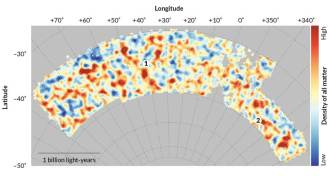 Cosmology
CosmologyMap reveals the invisible universe of dark matter
The Dark Energy Survey reports a new tally of the dark universe.
-
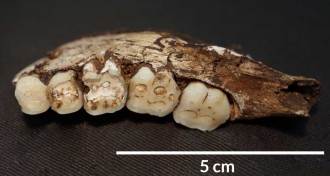 Anthropology
AnthropologyNitty-gritty of Homo naledi’s diet revealed in its teeth
Ancient humanlike species ate something that damaged its teeth.
By Bruce Bower -
 Life
Life‘Darwin’s Backyard’ chronicles naturalist’s homespun experiments
In the new book Darwin’s Backyard, a biologist explores Charles Darwin’s family life, as well as four decades’ worth of his at-home experiments.
By Sid Perkins -
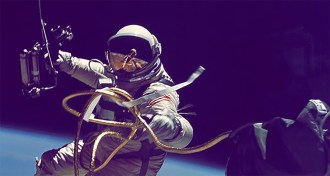 Tech
Tech50 years ago, NASA whipped up astronaut waste into rocket fuel
In 1967, scientists found a way to turn human waste into rocket fuel.
-
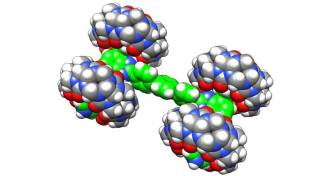 Tech
TechMeet the Bobcat Nanowagon, the world’s smallest monster truck
Chemists are scratching their heads over the wreckage of minuscule monster trucks.
-
 Science & Society
Science & SocietyPatience is one virtue scientists must embrace
Acting Editor in Chief Elizabeth Quill discusses how being patient isn't always easy in scientific work.
-
 Astronomy
AstronomyInquiries about the moon’s twilight zone, and more reader feedback
Readers had questions about the moon's tidal locking, quantum communication, microneedles and more.
-
 Astronomy
AstronomyAs Cassini’s tour of Saturn draws to a close, a look back at postcards from the probe
As Cassini prepares to plunge to its death, we celebrate the spacecraft's discoveries and breathtaking images of Saturn, its rings and moons.
-
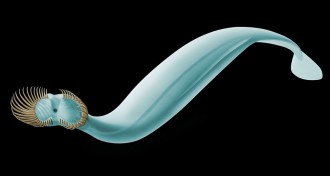 Paleontology
PaleontologyThis ancient sea worm sported a crowd of ‘claws’ around its mouth
A newly discovered species of arrow worm that lived over half a billion years ago had about twice as many head spines as its modern kin.
-
 Tech
TechNew antennas are up to a hundredth the size of today’s devices
A new type of antenna could be used in tiny electronics for wearable tech, injectable medical devices and more.
-
 Astronomy
AstronomyThese chip-sized spacecraft are the smallest space probes yet
Space initiative dubbed Breakthrough Starshot sent the smallest spacecraft yet into orbit around Earth.
-
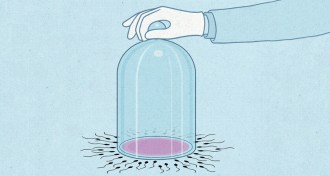 Health & Medicine
Health & MedicineBirth control research is moving beyond the pill
After decades of research, reproductive biologists are on the verge of developing new birth control options that stop sperm from maturing or save a woman's eggs for later.